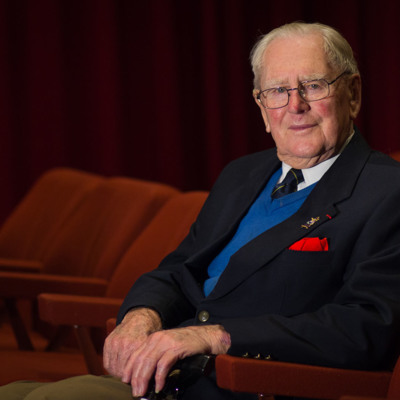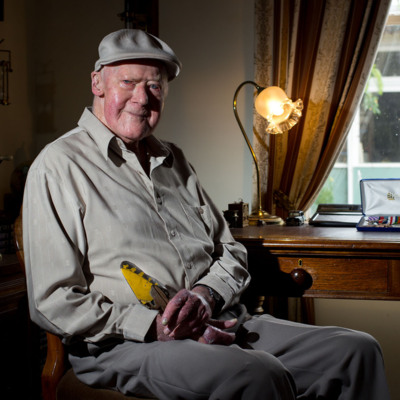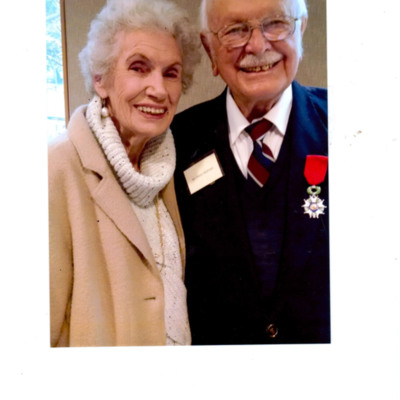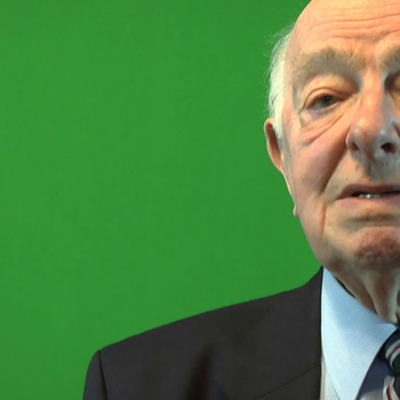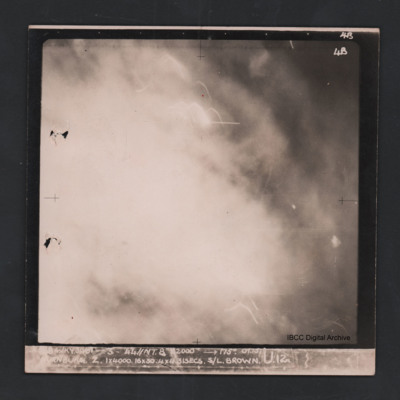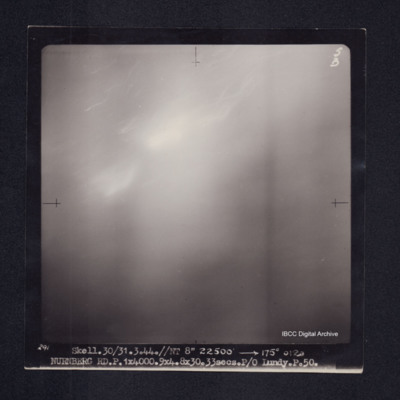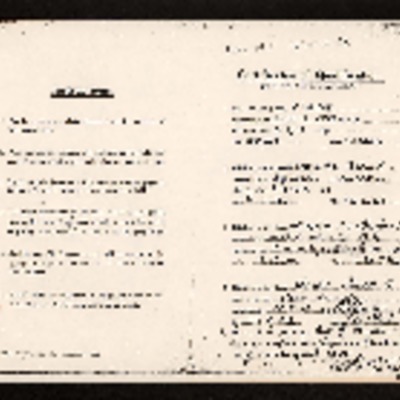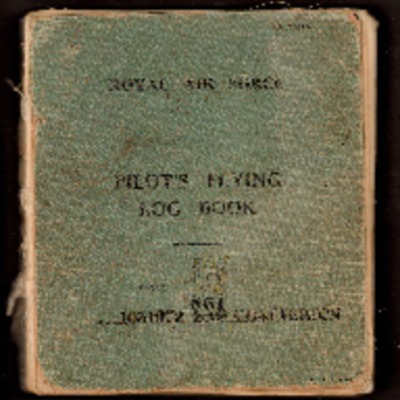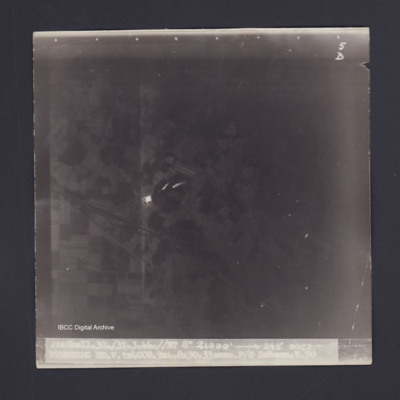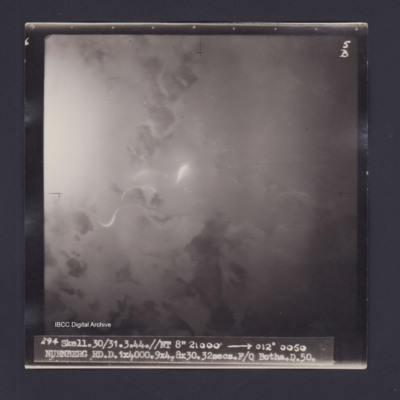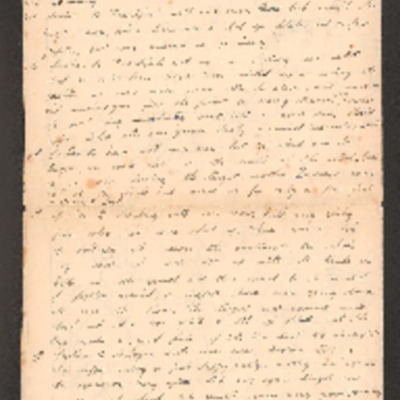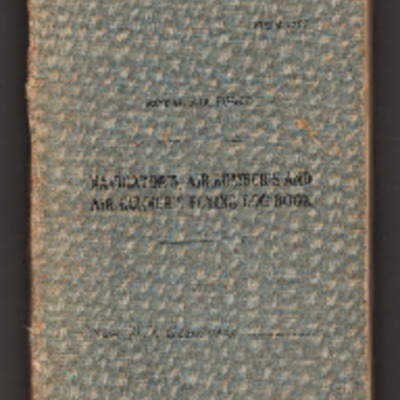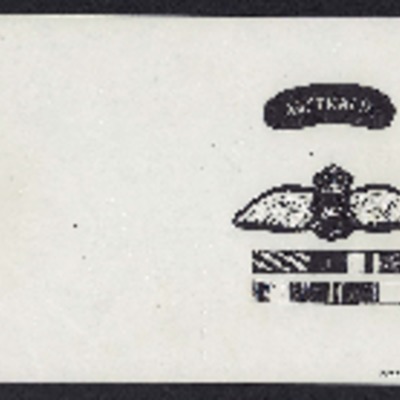Browse Items (101 total)
- Tags: bombing of Nuremberg (30 / 31 March 1944)
Interview with Fred Young
Tags: 5 Group; 57 Squadron; 8 Group; aircrew; Bombing of Mailly-le-Camp (3/4 May 1944); bombing of Nuremberg (30 / 31 March 1944); Churchill, Winston (1874-1965); demobilisation; Distinguished Flying Medal; flight engineer; Lancaster; Pathfinders; perception of bombing war; RAF East Kirkby; RAF Melksham; RAF Oakington; RAF Padgate; RAF Winthorpe; Stirling
Interview with Roger Calvert
Interview with Keith Campbell. Two
Tags: 466 Squadron; aircrew; bale out; bomb aimer; bombing; bombing of Nuremberg (30 / 31 March 1944); coping mechanism; crewing up; Gee; H2S; Halifax; memorial; mid-air collision; military living conditions; military service conditions; Normandy campaign (6 June – 21 August 1944); Operational Training Unit; prisoner of war; RAF Church Broughton; RAF Driffield; RAF Leconfield; Red Cross; Stalag 3A; Stalag Luft 7; superstition; the long march; training
Interview with Mike Chatterton
Interview with Jeff Gray
Tags: 61 Squadron; aircrew; Bennett, Donald Clifford Tyndall (1910-1986); bombing; Bombing of Mailly-le-Camp (3/4 May 1944); bombing of Nuremberg (30 / 31 March 1944); Cheshire, Geoffrey Leonard (1917-1992); civil defence; crewing up; Halifax; Home Guard; Lancaster; memorial; pilot; RAF Coningsby; RAF Cottesmore; RAF Skellingthorpe; RAF Syerston; RAF Wigsley; Scarecrow; searchlight; training; Wellington; York
Interview with Lindsay Hibbard
Tags: 57 Squadron; air gunner; aircrew; Anson; anti-aircraft fire; Battle; bombing of Nuremberg (30 / 31 March 1944); Distinguished Flying Cross; Heavy Conversion Unit; Lancaster Finishing School; Operational Training Unit; RAF East Kirkby; RAF Silverstone; RAF Syerston; RAF Winthorpe; Stirling; training; Wellington; wireless operator
Interview with Alan Payne
Tags: 630 Squadron; aerial photograph; aircrew; Anson; bomb aimer; bombing; Bombing of Mailly-le-Camp (3/4 May 1944); bombing of Nuremberg (30 / 31 March 1944); coping mechanism; crewing up; debriefing; Distinguished Flying Cross; ground crew; ground personnel; H2S; Halifax; Ju 88; lack of moral fibre; Lancaster; Me 109; military living conditions; mine laying; Nissen hut; observer; RAF Dumfries; RAF East Kirkby; RAF Silverstone; RAF Torquay; RAF Turweston; RAF Winthorpe; Scarecrow; superstition; target photograph; training; Wellington; Window; Women’s Auxiliary Air Force
Interview with Douglas Reed
Tags: 156 Squadron; 166 Squadron; 8 Group; aircrew; Bennett, Donald Clifford Tyndall (1910-1986); bombing; bombing of Nuremberg (30 / 31 March 1944); bombing of the Normandy coastal batteries (5/6 June 1944); crash; ground crew; ground personnel; Halifax; intelligence officer; Ju 88; Lancaster; Lancaster Finishing School; Master Bomber; mess; military ethos; Mosquito; Normandy campaign (6 June – 21 August 1944); Oboe; Operational Training Unit; Pathfinders; RAF Hemswell; RAF Kirmington; RAF Peplow; RAF Upwood; take-off crash; target indicator; training; Wellington
Interview with Herbert Tinning
Tags: 27 OTU; 51 Squadron; aircrew; Anson; bombing; bombing of Nuremberg (30 / 31 March 1944); coping mechanism; crewing up; Distinguished Flying Cross; fitter airframe; Gee; ground crew; ground personnel; H2S; Halifax; mess; military living conditions; military service conditions; navigator; Normandy campaign (6 June – 21 August 1944); Operational Training Unit; perception of bombing war; RAF Church Broughton; RAF Lichfield; RAF Snaith; RAF West Freugh; Schräge Musik; superstition; Tiger Moth; training; Wellington
Interview with Peter Watson
Tags: 101 Squadron; 115 Squadron; 15 Squadron; 300 Squadron; air gunner; aircrew; anti-aircraft fire; bomb struck; bombing; bombing of Nuremberg (30 / 31 March 1944); crewing up; fear; Fw 190; Gee; grief; military ethos; military service conditions; Normandy campaign (6 June – 21 August 1944); Operation Dodge (1945); Operation Exodus (1945); Operation Manna (29 Apr – 8 May 1945); Operational Training Unit; radar; RAF Faldingworth; RAF Ludford Magna; RAF Stormy Down; RAF Wyton; searchlight; training
Interview with Rusty Waughman. One
Tags: 101 Squadron; aerial photograph; aircrew; bomb aimer; bombing; bombing of Nuremberg (30 / 31 March 1944); briefing; coping mechanism; faith; fear; flight engineer; lack of moral fibre; Lancaster; mid-air collision; military ethos; military service conditions; navigator; pilot; RAF hospital Matlock; RAF Ludford Magna; superstition; target photograph; wireless operator
Interview with Rusty Waughman. Two
Tags: 101 Squadron; 1662 HCU; 82 OTU; aircrew; anti-aircraft fire; bombing; Bombing of Mailly-le-Camp (3/4 May 1944); bombing of Nuremberg (30 / 31 March 1944); briefing; C-47; control tower; coping mechanism; crewing up; dispersal; entertainment; faith; fear; FIDO; forced landing; ground crew; ground personnel; H2S; Heavy Conversion Unit; heirloom; lack of moral fibre; Lancaster; Lancaster Finishing School; love and romance; Me 109; mid-air collision; military living conditions; military service conditions; nose art; Operational Training Unit; Oxford; perimeter track; pilot; promotion; RAF Abingdon; RAF Blyton; RAF Desborough; RAF hospital Matlock; RAF Ludford Magna; recruitment; sanitation; searchlight; Stearman; superstition; Tiger Moth; training; Wellington; Women’s Auxiliary Air Force
Nurnburg
Nurnberg
Nurnberg
Pilot Officer A Baker's log book
John Chatterton's pilot's flying log book
Tags: 1660 HCU; 44 Squadron; 57 Squadron; 630 Squadron; 81 OTU; Advanced Flying Unit; aircrew; bombing; bombing of Nuremberg (30 / 31 March 1944); bombing of the Juvisy, Noisy-le-Sec and Le Bourget railways (18/19 April 1944); bombing of Toulouse (5/6 April 1944); Flying Training School; Halifax; Harvard; Heavy Conversion Unit; Lancaster; Lancaster Finishing School; Lincoln; Meteor; mine laying; Normandy campaign (6 June – 21 August 1944); Operation Dodge (1945); Operational Training Unit; Oxford; pilot; RAF Dunholme Lodge; RAF East Kirkby; RAF Sleap; RAF Swinderby; RAF Syerston; RAF Tilstock; Stearman; Tiger Moth; training; Whitley
Nurnberg
Nurnberg
Donald Cochrane's operations
Tags: anti-aircraft fire; bombing; Bombing of Mailly-le-Camp (3/4 May 1944); bombing of Nuremberg (30 / 31 March 1944); bombing of the Boulogne E-boats (15/16 June 1944); bombing of the Le Havre E-boat pens (14/15 June 1944); bombing of the Normandy coastal batteries (5/6 June 1944); Halifax; Ju 88; Lancaster; mine laying; Normandy campaign (6 June – 21 August 1944); Pathfinders; searchlight; target indicator
Donald Cochrane’s observer's and air gunner's flying log book
Tags: 1657 HCU; 30 OTU; 460 Squadron; aircrew; Anson; bombing; Bombing of Mailly-le-Camp (3/4 May 1944); bombing of Nuremberg (30 / 31 March 1944); bombing of the Boulogne E-boats (15/16 June 1944); bombing of the Le Havre E-boat pens (14/15 June 1944); bombing of the Normandy coastal batteries (5/6 June 1944); Dominie; Heavy Conversion Unit; Lancaster; Lancaster Finishing School; mine laying; Normandy campaign (6 June – 21 August 1944); Operational Training Unit; Proctor; RAF Binbrook; RAF Feltwell; RAF Seighford; RAF Stradishall; Stirling; training; Wellington; wireless operator
Interview with a navigator from 101 Squadron
Tags: 101 Squadron; air gunner; aircrew; bomb aimer; bombing; bombing of Nuremberg (30 / 31 March 1944); briefing; C-47; coping mechanism; flight engineer; Gee; ground crew; ground personnel; lack of moral fibre; Lancaster; mid-air collision; military ethos; navigator; Operational Training Unit; perception of bombing war; pilot; RAF Blyton; RAF Wymeswold; Scarecrow; Schräge Musik; shot down; superstition; training; Wellington; wireless operator
Interview with Alexander Charles Gilbert
Upon his call up,…
Tags: 149 Squadron; 49 Squadron; 514 Squadron; 9 Squadron; aircrew; B-17; bombing of Dresden (13 - 15 February 1945); bombing of Nuremberg (30 / 31 March 1944); Cook’s tour; crewing up; Distinguished Flying Cross; fitter airframe; flight engineer; flight mechanic; ground crew; Lancaster; military living conditions; military service conditions; Operation Dodge (1945); Operation Exodus (1945); Operation Manna (29 Apr – 8 May 1945); RAF Bardney; RAF Calshot; RAF Feltwell; RAF Foulsham; RAF Halton; RAF Kirkham; RAF Methwold; RAF Morton Hall; RAF Scampton; RAF Waterbeach; RAF Winthorpe
Interview with James Wright
Tags: 61 Squadron; 630 Squadron; 97 Squadron; Absent Without Leave; aircrew; animal; bombing; bombing of Nuremberg (30 / 31 March 1944); crewing up; final resting place; ground personnel; Lancaster; Me 109; medical officer; memorial; military discipline; military ethos; military living conditions; military service conditions; navigator; Pathfinders; perception of bombing war; RAF Barrow in Furness; RAF Heaton Park; RAF Scone; RAF Skegness; RAF Upper Heyford; strafing; Tiger Moth; training; Wellington
Robert Anderson's memoir
Tags: 106 Squadron; 5 Group; 617 Squadron; aircrew; anti-aircraft fire; bombing; bombing of Kassel (22/23 October 1943); bombing of Nuremberg (30 / 31 March 1944); Cheshire, Geoffrey Leonard (1917-1992); fear; Harvard; Heavy Conversion Unit; Ju 88; Lancaster; Manchester; military living conditions; military service conditions; mine laying; Oxford; Pathfinders; pilot; RAF Lichfield; RAF Metheringham; RAF Skellingthorpe; RAF Swinderby; RAF Syerston; searchlight; service vehicle; Tiger force; tractor; training; Wellington; Yale


